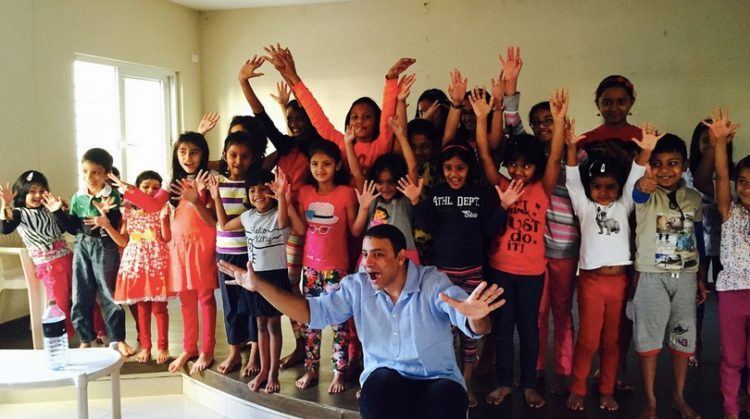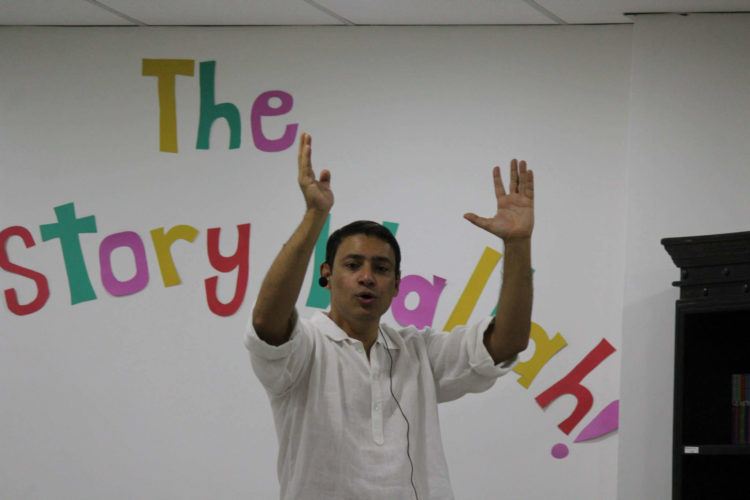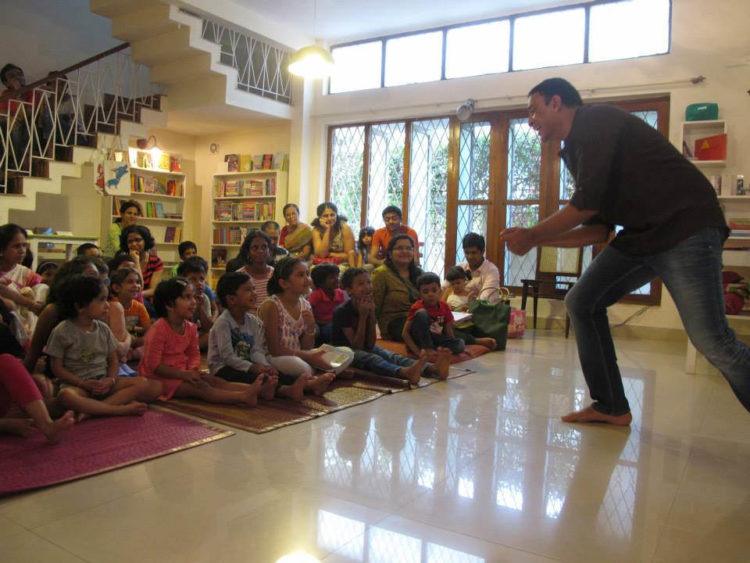
Photo credit: The Storywallahs.
Rahul and Smitha became friends almost immediately after they met in ninth grade. Rahul needed help catching up with his classes, as he had joined the school mid term and Smitha was willing to help. For hours they studied together, talked about life and friendship, and became closer. While she felt that Rahul was the one friend she could confide in, he looked forward to every minute he got to spend with her. No one could understand him like Smitha did.
Towards the end of the school year, Rahul posted on Facebook that he was in a relationship with Smitha. Her mom, a scientist, was the first to see the updated status and confronted Smitha. “Is this why we send you to school? Is this what you are learning? I knew that boy Rahul could not be trusted,” she scolded Smitha that night.
“Rahul is the only person I can trust right now, Mom. I don’t care what you think,” she screamed as she ran out of the dining room, slamming her bedroom door. Furious about what her mom was telling her, confused about what it meant, Smitha logged onto Facebook, knowing that Rahul would come online in a bit. He was the one she needed to talk to.
She clicked on the numerous notifications only to be startled by what she saw: Rahul’s updated relationship status. What was he talking about, she wondered, suddenly understanding what her mother was trying to tell her. In the meantime, comments had begun flooding the updated status, many congratulated him, others teased him. A few friends had congratulated her as well, as if she had anything to do with this. She was angry, terrified, and lost all at the same time. She logged out. But her problems were just beginning. Most of it was offline.
If you read this story with rapt attention, Ameen Haque, founder of Storywallahs is right: stories speak louder than anything else.
“A majority of us would remember the story about the hare and the tortoise, but if I were to quiz you on the Pythagoras’ theorem, which you had to learn and use for years in math, do you remember it?” he asks me, on the sidelines of an edtech conference last week in Bangalore. “Most of us wouldn’t.” (I had to Google it.).

Photo credit: The Storywallahs.
Ameen, with his background in advertising and theater, believes that it is stories that move the world and shape history. By performing in cultural spaces like Rangashankara and through workshops for corporates and in schools, Ameen hopes to revive the culture of storytelling and make learning fun, easy, and most importantly, memorable.
Sex education can’t be a biology lesson
Ameen uses stories to teach life skills and advocates the use of stories in math and science classes. Now, through stories, Ameen is hoping to plug a serious gap in Indian school curriculum: sex education.
Sex education often ignores issues such as body image, gender equality, sexual orientation, etc. in the context of the modern world, especially social media.
“Sex education is usually a biology lesson in most classes. It ignores the emotional aspect. There is no curriculum for sex education in schools and it often ignores issues such as body image, what beauty is, skin color, gender equality, sexual orientation, etc. in the context of the modern world, especially social media. While there are schools that want to impart sex education to students, they do not know how to do it. This is where we come in,” he says.
Rahul’s and Smitha’s story is an example about consent and misreading signals between opposite genders, put in a modern context of social media. Not only is there a large number of people who are discussing their private lives on social media, but the age bar is getting lower.
Ameen tells me that when he discussed this story at one of Storywallahs’ sessions with kids, it revealed various biases that the children had picked up as well.
It is not just about the anatomy of our bodies, but also about how we feel and react to natural urges. It is an integral part of our being.
Storywallahs developed its sex education curriculum, spanning over 36 weeks, with the help of subject experts at India’s National Institute of Mental Health and Neuroscience, Enfold, a not-for-profit working for child safety and gender empowerment, and another non-for-profit organization, Tarshi (Talking about Reproductive and Sexual Health Issues).
The subject experts helped Storywallahs use the correct terminologies while discussing the topic (‘vagina’ or ‘penis’ and not ‘where you pee from’) so as to remove the feeling of shame which can be a huge deterrent for the conversation to happen. The team at Storywallahs trained those practitioners in the art of storytelling as a way to teach students a sensitive topic without really making anyone uncomfortable.
The curriculum is on a pilot run in schools like Vasant Valley School, Riverside School, and Foundation School in Delhi. In November, it will be rolled out at Delhi Public School (North) in Bengaluru.
The controversial subject

Photo credit: .
Sex education is a controversial subject in India. It was in the news when, in 2014, then central health minister Dr Harsh Vardhan in his vision document for Delhi schools, stated that sex education in schools should be banned. The public outcry that followed resulted in the minister clarifying his statement, saying he only meant that the language used should not be vulgar. But the incident showed the general attitude towards the subject of sex, which is still taboo, in India.
While the center announced an Adolescent Education Programme, the language was preachy and many states were against the idea, Ameen says. “It talked about AIDS prevention and the risks of tobacco use. It was prescriptive in nature,” he says.
How can you treat sex education as, say, learning the harmonium? That is optional. This is something that affects all of us.
However, the need for sex education in schools has been reiterated over and over again, especially with increasing cases of sexual abuse of youngsters being reported across the country.
There is definitely a lack of political initiative when it comes to sex education, Ameen says. But he is also confident of the situation changing in a few years.
“There is an urgent need for conversations around sex and gender, especially for adolescents. For the younger population, there is already a lot of conversation around good touch and bad touch,” he tells me. “In the next few years, there will be an increased demand to have these conversations in schools, with parents leading the demand.”
Ameen predicts that it will take about two to three years before the conversation actually becomes mainstream.
At present sex education is optional. “How can you treat sex education as, say, learning the harmonium? That is optional. This is something that affects all of us,. It is not just about the anatomy of our bodies, but also about how we feel and react to natural urges. It is an integral part of our being,” he says.
Storywallahs hopes to change this conversation by providing training to teachers on how to approach the subject through stories and training parents on how to have the conversation with their children. For schools that want to outsource the teaching, Storywallahs does that as well.
This post Sex education can’t be a biology class. This founder bats for stories instead appeared first on Tech in Asia.
from Tech in Asia https://www.techinasia.com/sex-education-through-stories-by-storywallahs
via IFTTT
No comments:
Post a Comment